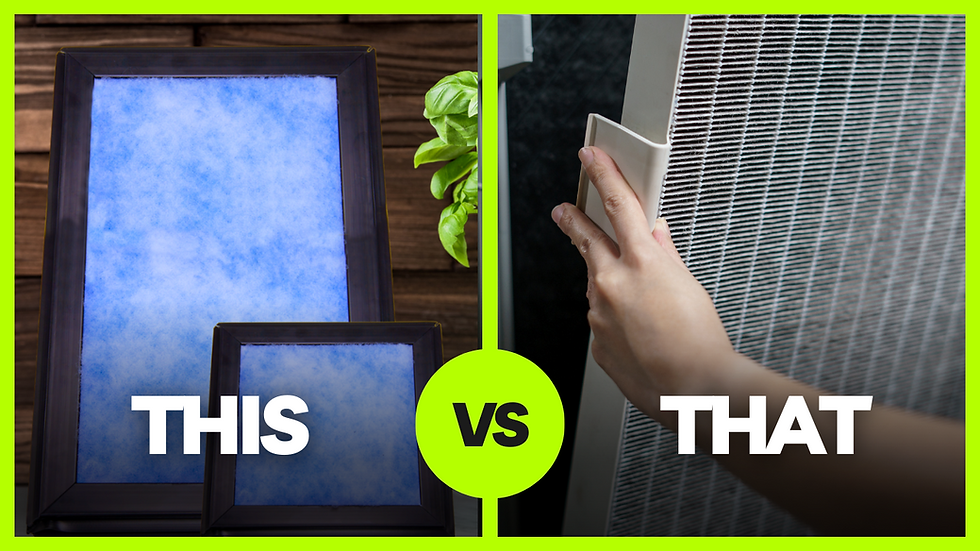Comparing Traditional and Advanced HEPA-Grade Filtration: What You Need to Know
- Everest Microbial Defense

- May 1, 2023
- 2 min read

Introduction to HEPA-Grade Filtration
High-Efficiency Particulate Air (HEPA) filters have long been the gold standard in air purification. These filters remove at least 99.97% of airborne particles measuring 0.3 micrometers in diameter. However, recent advancements in filtration technology have led to the development of advanced HEPA-grade filters that can offer even better protection against microscopic contaminants. In this article, we'll explore the differences between traditional and advanced HEPA-grade filtration and discuss why Everest's sub-micron air filters are a superior option for your home or business.
The Basics of Traditional HEPA Filters
Traditional HEPA filters are made from a dense web of randomly arranged fibers, typically composed of glass or synthetic materials. Air passes through the filter, and particles are trapped through a combination of interception, impaction, and diffusion. The efficiency of a HEPA filter increases as the particle size decreases. However, particles smaller than 0.3 micrometers can still slip through, posing potential health risks.
Limitations of Traditional HEPA Filters
While traditional HEPA filters offer substantial air purification benefits, they have some limitations. One of the most significant drawbacks is their inability to capture ultrafine particles effectively. According to a study conducted by Harvard University in 2020, ultrafine particles, those smaller than 0.1 micrometers, can penetrate deep into the lungs and bloodstream, causing various health issues. Moreover, traditional HEPA filters can be relatively expensive to maintain, requiring frequent replacement to ensure optimal performance.
Introducing Everest's Advanced Sub-Micron Air Filters
Everest's advanced sub-micron air filters offer a superior alternative to traditional HEPA filters. These cutting-edge filters combine the efficiency of HEPA filtration with the ability to capture ultrafine particles, providing a higher level of protection against airborne contaminants. Everest's sub-micron filters are designed for easy integration with existing HVAC systems, eliminating the need for costly upgrades.
The Benefits of Advanced HEPA-Grade Filtration
Advanced HEPA-grade filtration offers numerous advantages over traditional HEPA filters, including:
Improved Air Quality: Everest's sub-micron filters effectively capture particles smaller than 0.3 micrometers, ensuring cleaner air in your home or facility.
Enhanced Health Protection: By capturing ultrafine particles, advanced HEPA-grade filters can significantly reduce the risk of respiratory issues and other health problems associated with poor air quality.
Cost Savings: Everest's sub-micron filters require less frequent replacement than traditional HEPA filters, resulting in lower long-term maintenance costs.
Easy Integration: Everest's advanced filters are compatible with existing HVAC systems, eliminating the need for expensive upgrades.
As air quality continues to be a pressing concern in today's world, it is crucial to invest in the best air filtration solutions. Everest's advanced sub-micron air filters offer a superior level of protection against airborne contaminants compared to traditional HEPA filters. By choosing advanced filtration technology, you can provide a healthier environment for your family, employees, and customers.
















Comments